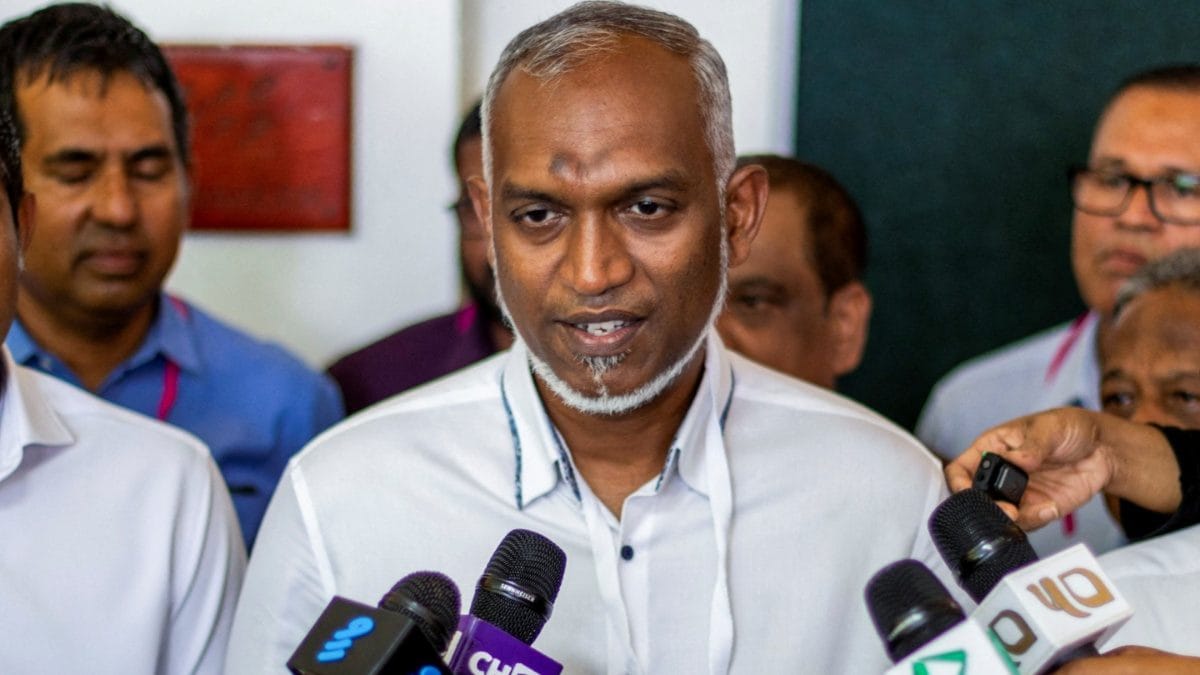President Mohamed Muizzu’s People’s National Congress (PNC) has secured a majority in the Maldives parliamentary elections, as declared by the country’s election commission. The results revealed that out of the 93-member House, the PNC clinched a victory bagging 66 out of the 86 seats that were declared.

Also Read: Maxwell Azzarello Sets himself on Fire during Trump Trial in New York
President Mohamed Muizzu, who assumed office as a proxy for former president Abdulla Yameen has been in his commitment to recalibrating Maldives’ foreign policy towards closer ties with China.
This electoral mandate vindicates his approach but also emboldens his administration to pursue economic cooperation with Beijing.
Mohamed Muizzu’s campaign rhetoric centered around the slogan “India out,” resonated with a segment of the electorate disillusioned with the perceived compromises on national sovereignty under previous administrations.
The electorate’s response at the polls indicates an endorsement of Muizzu’s vision for a redefined Maldivian identity.
The MDP suffered a humiliating defeat managing to secure only a dozen seats in the current election cycle.
This reversal of fortunes underlines the shift in Maldivian politics and the waning influence of opposition forces in the face of Muizzu’s resurgent PNC.
The Maldives situated strategically in the Indian Ocean has emerged as a battleground for competing regional interests, with China and India vying for influence in the archipelago.
Mohamed Muizzu’s pivot towards China with his administration’s efforts to distance itself from Indian influence has altered the geopolitical calculus in the region.
Mohamed Muizzu’s plans for infrastructure development including the construction of thousands of apartments on reclaimed land.
One of the defining features of the electoral outcome is the conspicuous absence of female representation with only three women candidates out of 41 elected.
The Election Commission of Maldives declared the results, revealing that the PNC secured a lead by winning 66 out of the 86 seats that were declared, surpassing the majority mark of 47 seats by a huge margin. With the remaining seven seats yet to be announced.
This electoral victory underlines the popular support for President Muizzu’s pro-China stance, a shift away from the country’s previous “India First” policy.
Also Read: Columbia University Protests: More than 100 Pro-Palestinian Students Arrested
The election outcome suggests a clear endorsement of Muizzu’s efforts to strengthen economic ties with China and recalibrate the country’s foreign relations strategy.
Mohamed Muizzu’s ascent to power last September, as a proxy for former president Abdulla Yameen, laid the groundwork for this electoral victory. Yameen, another pro-China leader was released after a court overturned his corruption conviction.
The Maldivian Democratic Party (MDP), the chief opposition party, suffered a setback in the elections, managing to secure only a dozen seats.
The electoral campaign was by tensions between pro-China and pro-India factions within the Maldivian politics.
Mohamed Muizzu’s campaign rhetoric, advocating for an “India out” approach, highlighted the growing divergence between Maldives and its traditional ally, India.
The strained relations between Maldives and India were by diplomatic spats and social media controversies.
The decline in Indian tourist arrivals and the reorientation of Maldives’ tourism strategy towards China reflect the dynamics of regional power play.
Mohamed Muizzu’s administration has been in cementing ties with China, evidenced by the awarding of infrastructure contracts to Chinese state-owned companies.
Plans to remove Indian troops stationed in the Maldives signal a recalibration of defense and security priorities in line with the president’s pro-China stance.
The outgoing parliament dominated by the MDP had been a source of obstruction for Muizzu’s policy agenda particularly regarding his efforts to realign Maldivian diplomacy.
The PNC’s resounding victory in the elections is expected to provide the necessary leverage for Muizzu to advance his objectives without parliamentary resistance.
Also Read: Pakistan Blocks Social Media X Over National Security Concerns























